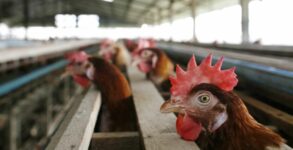Today, the Board of Directors of the World Bank approved $450 million in funding for the Turkey Green Industry Project, which will support an efficient green transformation of Turkish industrial firms.
The operation will provide $250 million to the Small and Medium Enterprises (SMEs) Development Organisation of Turkey (KOSGEB) to assist SMEs in improving their resource performance and reducing carbon emissions, and $175 million to the Scientific and Technological Research Council of Turkey (TÜBITAK) to promote green innovation activities by Turkish enterprises, research institutions, and universities. The remaining $25 million will be allocated to the Turkish government for the coordination of project activities and the establishment of institutional foundations for the implementation of the national green industrial transition agenda.
In recent years, the Turkish manufacturing sector has experienced significant growth, accounting for more than 90% of all Turkish exports, of which over 40% are shipped to the European Union (EU). However, Turkish manufacturing is more carbon-intensive than the EU average, and the EU will employ stricter carbon standards for manufactured goods under the Carbon Border Adjustment Mechanism (CBAM). Turkey is attempting to adapt its manufacturing sectors to the new standards in response.
“The transition to a greener economy is not only an environmental imperative for Turkey, but also a tremendous economic opportunity.” This initiative will enable industrial firms to harness the power of renewable energy, implement energy-efficient technologies, and adopt circular economy principles, paving the way for a more sustainable and prosperous future, according to Humberto Lopez, Country Director for Turkey for the World Bank.
Over the past two decades, Turkey’s greenhouse gas emissions have increased significantly, with the manufacturing sector playing a significant role. This project seeks to accelerate the transition of industrial firms towards a low-carbon, resilient, and sustainable future, while also fostering economic growth and job creation.
It will target thousands of industrial firms to invest in solar energy for their own consumption, develop and implement green transition plans to reduce carbon emissions and improve their resource efficiency, with an emphasis on energy, water, and waste management efficiency.
It will also support industrial firms’ efforts to create, adopt, and adapt new or significantly improved products (goods and services) and business processes, which will improve sustainable development and lead to a more efficient and responsible use of natural resources and positive environmental impacts, including energy savings, pollution reduction or prevention, waste recycling, and resource efficiency.
“The Turkey Green Industry Project recognises the importance of small and medium-sized enterprises (SMEs) to the Turkish economy and their ability to promote sustainable development. By investing in their green transformation, SMEs will be better positioned for new development opportunities on a global market that is becoming increasingly environmentally conscious, according to one of the World Bank’s Project Team Leaders, Stefka Slavova.
The World Bank is an essential and dependable partner for Turkey’s efforts to achieve a green transition, safeguard its citizens from the effects of climate change, and invest in a green economy for the future. In recent years, the World Bank has also implemented the Seismic Resilience and Energy Efficiency in Public Buildings Project, the Small and Medium Enterprises Energy Efficiency Project, and the Energy Efficiency in Public Buildings Project, among others.


















